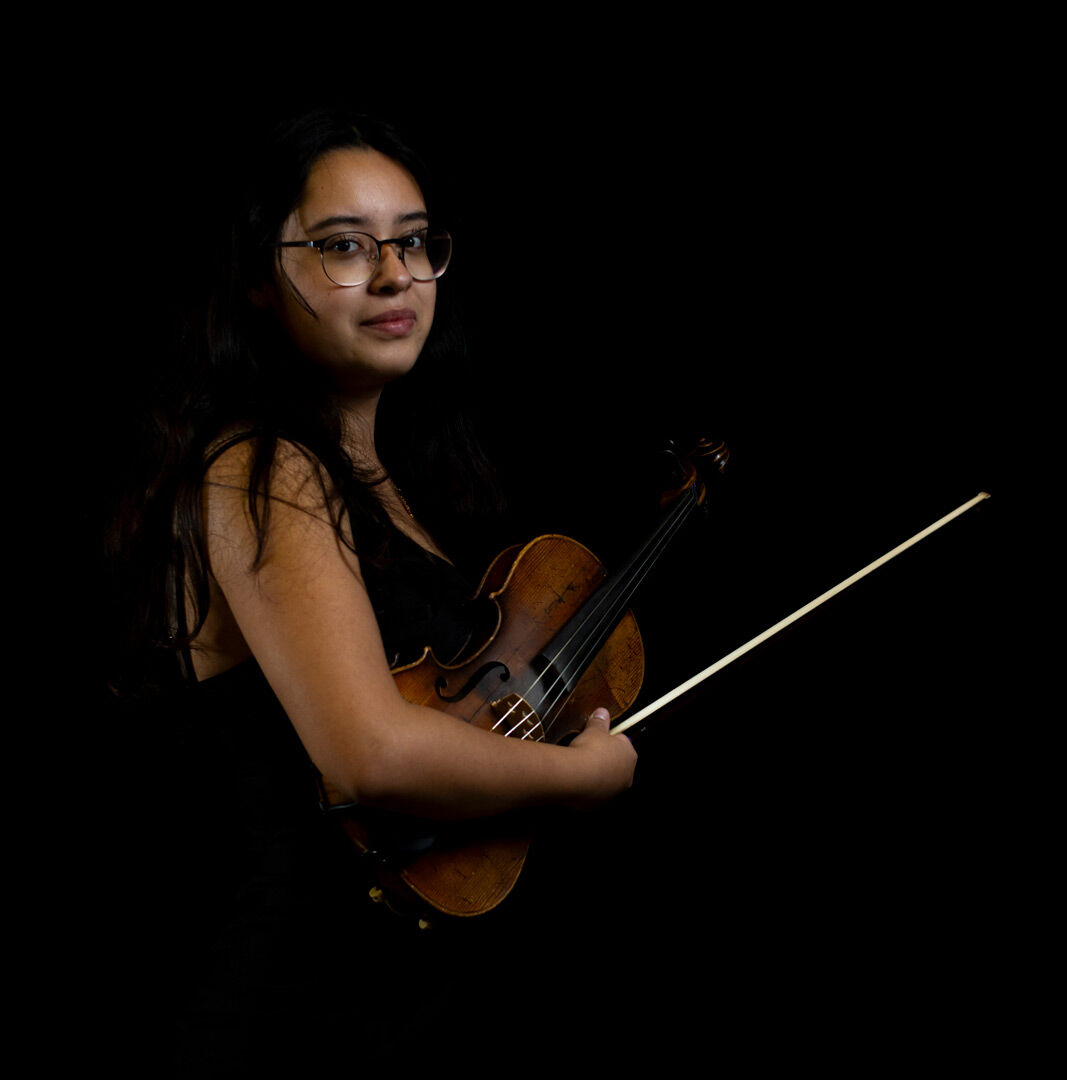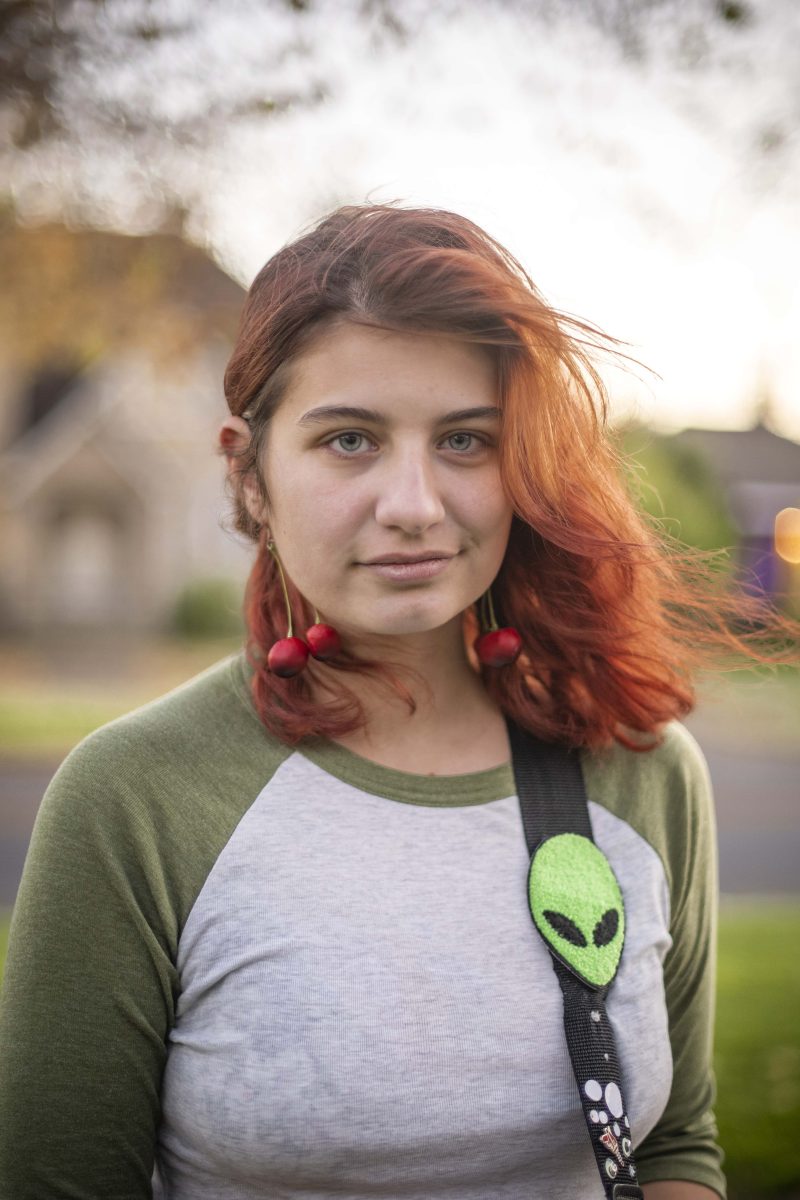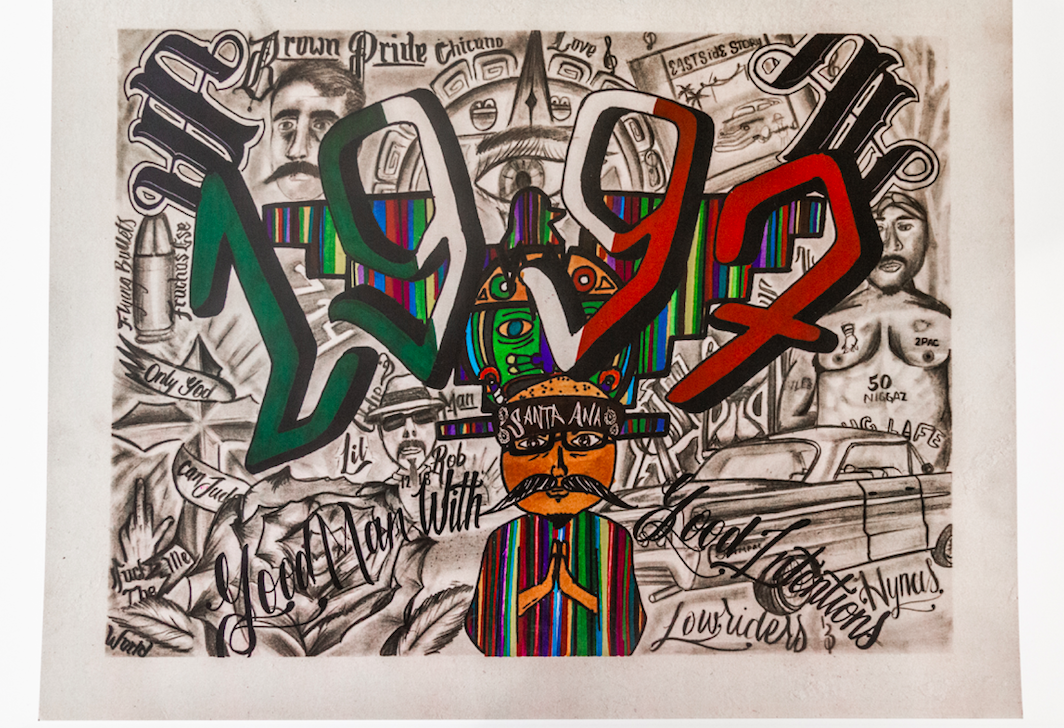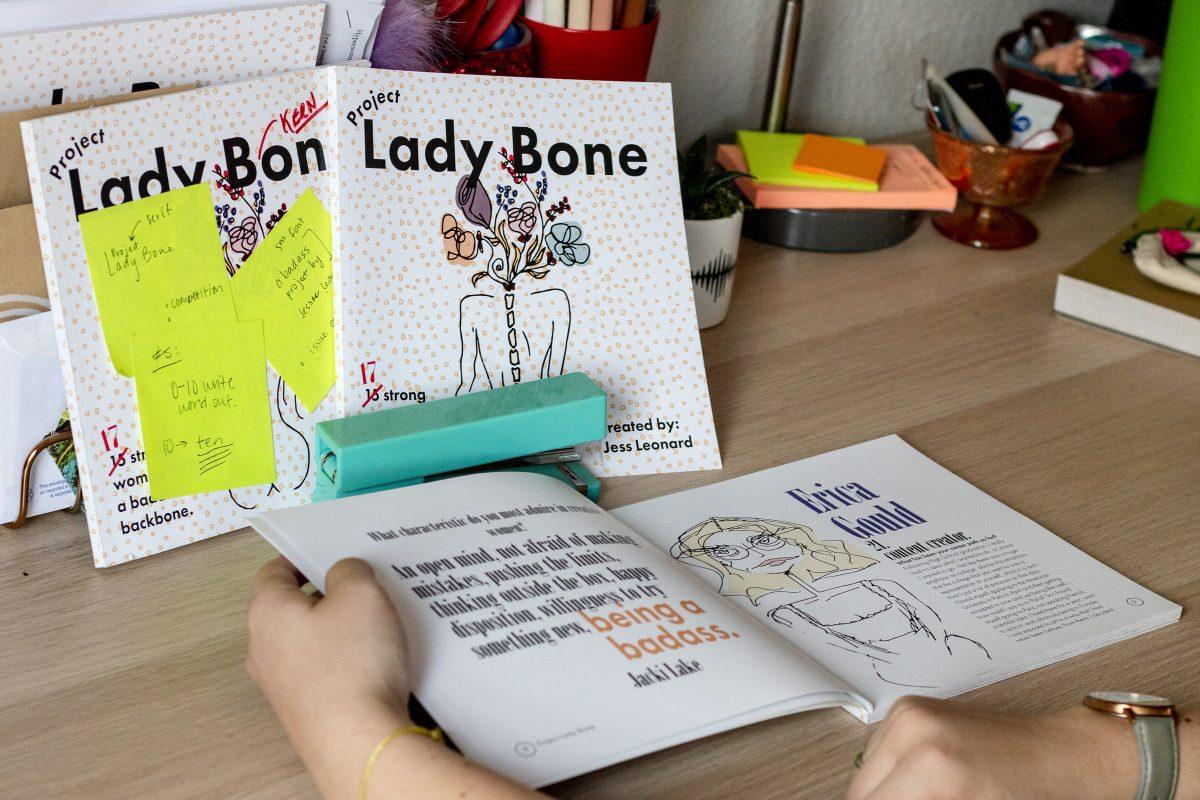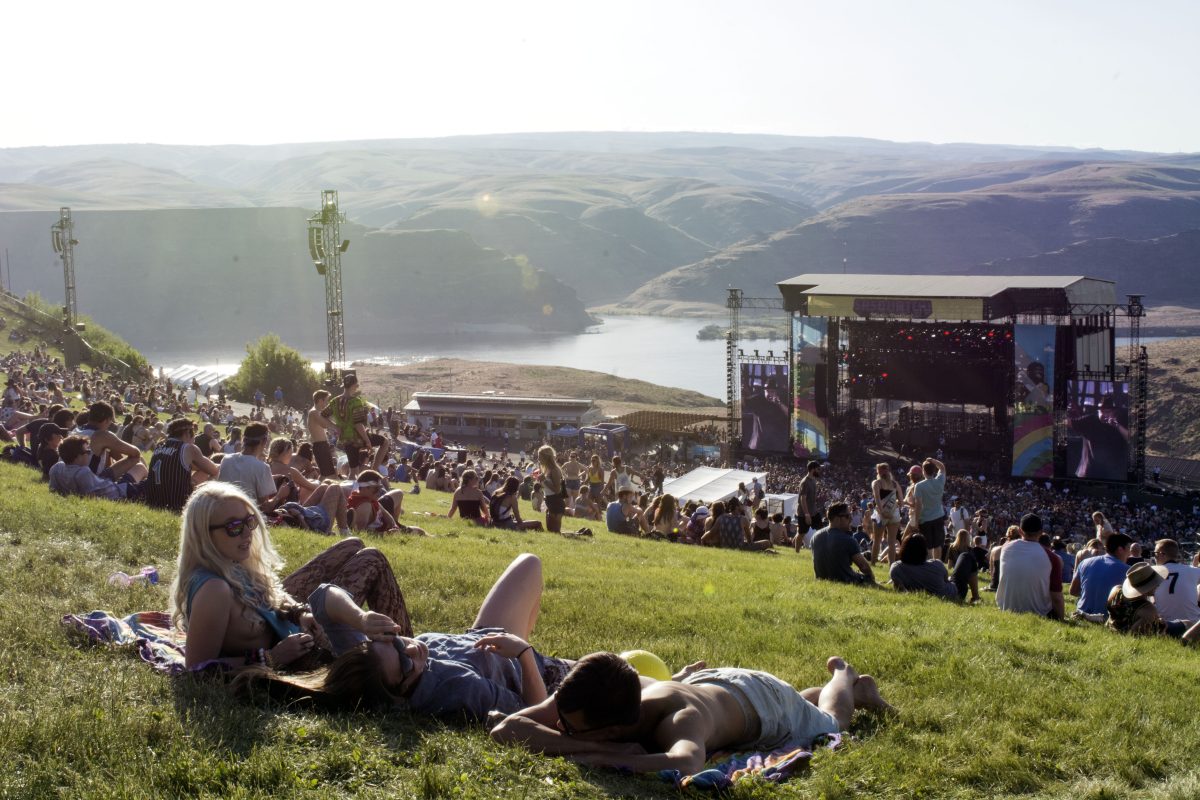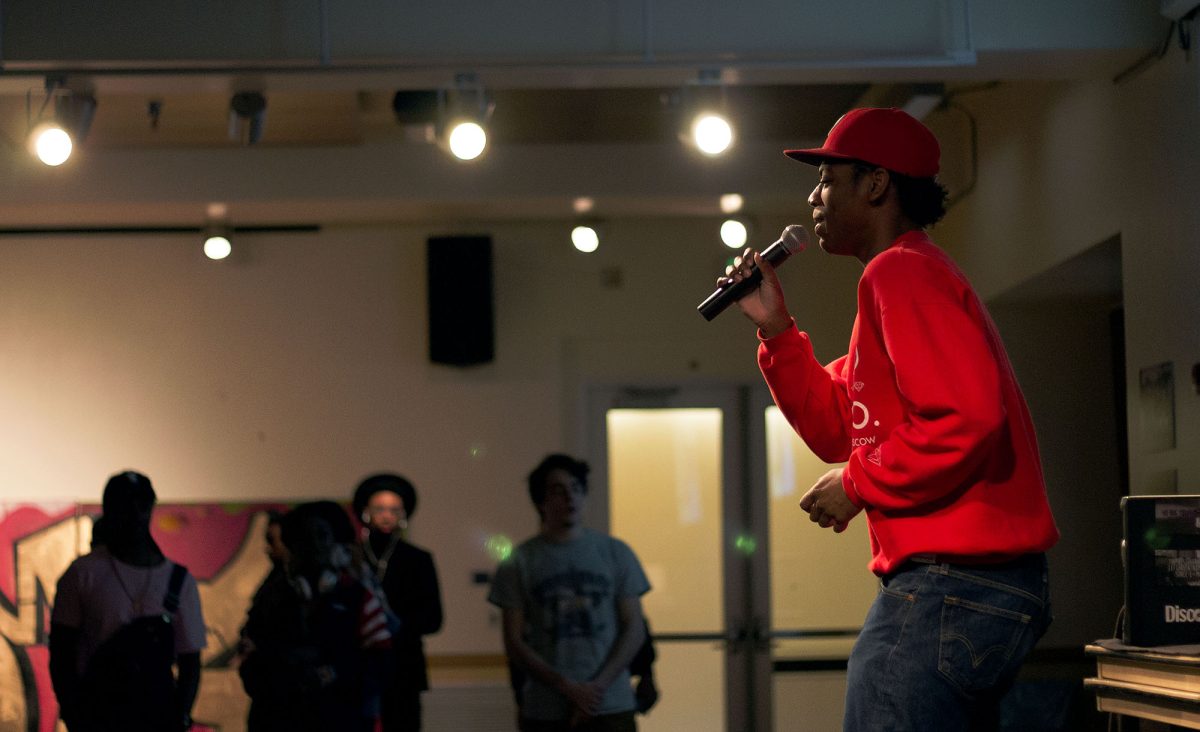Words by Sam Smargiassi, Photos by Kendra Siebert
On Feb. 18, the LGBTQIA+ student union at University of Oregon put on Gays in Space, a cosmic-themed drag show. Lined up in colored hair and glittered bodies, Eugene’s residents and University of Oregon students came out to show support for the LGBTQIA+ community.
“The best part is everybody that’s here,” says Karess Ann Slaughter, Gays in Space host and Eugene drag legend. “It sounds cheesy to say, but without the people who come, there would be no energy for us to feed off of and that’s the best thing about it because if they’re having a good time, that’s what makes me have a good time.”
Karess was the first performer. Their sequins and lip gloss shimmered, illuminated by stage lights, demanding the audience’s attention. They returned three times throughout the show to dance and lip sync, once performing “S&M” by Rihanna – a performance using a lot of hip popping and long gazes. Their co-host, Facisha Farce, performed twice, bending gender norms through humour. Both Facisha and Karess came out in full drag — donning make-up, wigs, and form-flattering outfits.
University of Oregon students performed as well, each one seeming as liberated as the next. One student came out with a viking helmet, shield and Trojan soldier attire to fight another student dressed as Donald Trump. The audience was ecstatic to see who some call “The Orange Menace” defeated by the warrior.
Politics have consistently been a vehicle for the rights of the LGBTQIA+ community. When gay marriage became legal in 2015, the country imagined that it could only move forward from that point. However, the political climate visibly changed during the 2016 election season. The country watched as groups of politicians expressed their desire to take away rights from the LGBTQIA+ community and, in the heat of the issue the university is now discussing cutting the assistant director position in the LGBTQIA+ Educational Support Services program.
During a time of political distress and questions about the university’s inclusivity, events like this aim to propel a community into activism and general involvement. According to many attendees and staff, Gays in Space is one example of how students are forming alliances and getting involved during a change in political climate.
“I think this is important because it gives the community a chance to turn out and it also gives allies a chance to show their support,” says Miriam Thielman, student and event staff member. “Especially now, it’s really important to have spaces that are so obviously inclusive and areas where people can just let their hair down and feel safe being who they are”
“An event like this is really important for the LGBTQ students on campus because it gives folks an opportunity to express themselves in a way they might not normally get to,” says Cressa Perloff, event coordinator of the club LGBTQA3. “It’s a chance for the broader community to come out and support this aspect of LGBTQ culture.”
Even though the aim of this event was to promote inclusiveness, the argument could be made that the university shouldn’t be getting credit as the intensely progressive establishment that it has a reputation for being. According to Perloff, events that give the university that reputation, such as Gays in Space, are put on by student unions. That means that the events are put on by people who are paid $120 a month.
“This event is obviously a big deal for the UO community. A lot of the University’s reputation as being LGBTQ friendly comes from events like this,” Perloff says. “I think it’s definitely weird that a huge event like this, that’s so important, is basically put on by student-volunteer work.”
“I don’t have a solution for it but it’s definitely something that a lot of different student union groups deal with,” Perloff says. “A lot of them are for the purpose of providing community for marginalized groups and helping students find support and there are some resources that the university provides but there’s a lot that happens that is basically the work of stipend students.”
Moving forward, people in the LGBTQIA+ community hopes to see more from university activism. Budget support for events like Gays In Space, and retaining important positions in the LGBTQIA+ Educational Support Services are two places for the university to start. Ultimately though, this event shows there is a lot to still be discussed between the university and the LGBTQIA+ community.
Performers in “Gays in Space” made political statements about the current political climate through their routines, in which participants fought and defeated the “Orange Menace of Uranus.” Still, the show was primarily focused on the power within the LGBTQA3 community and on generating positive community support.










